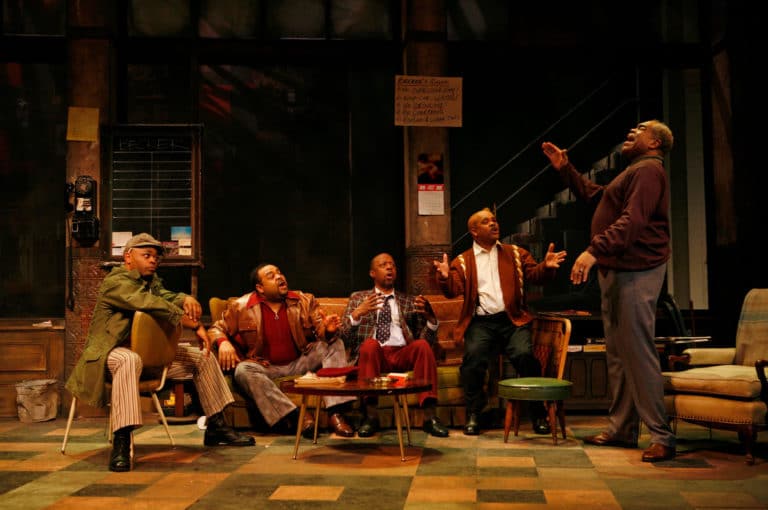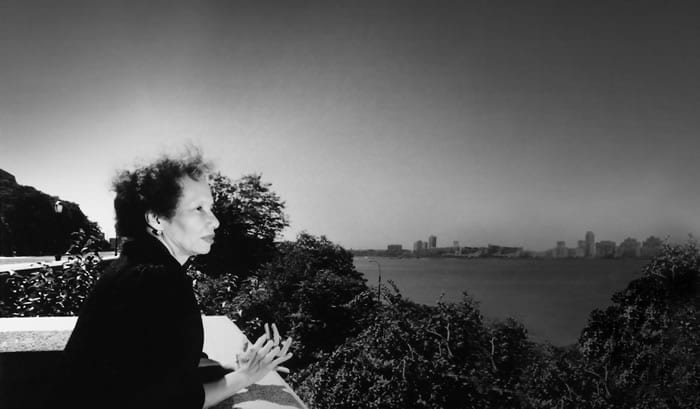By Jordan Ealey
This article was first published December 9, 2020 in DC Theatre Scene here.
In his 1996 speech, “The Ground On Which I Stand,” acclaimed playwright August Wilson charged the American theatre industry to take seriously the funding and producing of Black theatre. This includes not casting Black actors in roles originally written for white actors (condemning “colorblind” casting), but rather to program plays by Black playwrights, hire Black directors and designers, and even include Black employees at the administrative and leadership levels. Larger, better funded regional theatre has had a long history of exclusion, as pointed out by Wilson and other theatre artists of color.
While the last few years have seen the appointments of more diverse artistic directors and administrators at the helm of several LORT theatres (such as Hana S. Sharif at The Repertory Theatre of St. Louis and Nataki Garrett at Oregon Shakespeare Festival, among others), Washington D.C.’s rich history of Black theatre can often be overlooked and underexplored.
Alongside its intriguing history of African American culture, Black theatre in D.C. has always been vibrant. The African Continuum Theatre Company, once one of D.C.’s premiere companies dedicated to Black theatre, has contributed to this exciting, but underexplored legacy.
Founded in 1989 by John L. Moore III, who served as its Executive Director, the African Continuum Theatre Company sought out to provide a space for people of the African diaspora to produce, perform in, and create theatre. African Continuum joined the ranks of D.C. Black Repertory Company, founded by actor-director-producer Robert Hooks, a fellow theatre company dedicated to a similar goal.
African Continuum became a full producing theatre company in 1995, which led to numerous productions of African American plays. Some of its highlights ranged from an early production of George C. Wolfe’s Spunk (which he adapted from the short fiction of Zora Neale Hurston) in 1993 to staging the D.C. premiere of Lynn Nottage’s Intimate Apparel in 2008. The latter production was helmed by Jennifer Nelson. I had a chance to talk with about her experience with the African Continuum Theatre Company.
Nelson grew up in a family of artists. Her father was an employee in the U.S. Army, but he was also, in Nelson’s words, “an incredible poet.” He installed in her and her sister – also a poet, and living in New Jersey – an appreciation of, and hunger for, the power of words. She became an actor and director in her native California, until an offer from Living Stage—a multiracial, community engaged theatre for social change founded by Robert A. Alexander in 1966—for an acting role brought her to Washington. A transplant from California, Nelson came to the company to take over as its first artistic director after it fully transitioned into a full producing theatre. Nelson recalls having grown tired of working at Living Stage (saying that “it’s a long story.”).
She longed for other theatrical opportunities. While working with Living Stage, she found herself attending productions at D.C. Black Rep, getting to know others in DC’s black theatre community, and eventually was introduced to Moore. Notably, one of the people Nelson was introduced to was Kenneth Daugherty, an actor and director who worked for D.C. Black Rep and one of the founding members of the African Continuum. She mentions that she “kind of stumbled into [the African Continuum],” but that serendipitous encounter led to an exciting new career direction.
Having developed an interest in producing non-traditional theatre from working with Living Stage, Nelson wanted to produce theatre that “impacted on people’s lives—not only on the actors, but the people that came to see us.” That kind of ethic pushed her to pursue opportunities beyond Living Stage, leading to her position at African Continuum, where she remained for more than a decade. After Moore’s departure from the company, Nelson says they were looking for someone to lead the company and she was that person. “It was me! I could work at a place where there was no money,” she recalls, with her incredibly infectious laugh.
Nelson notes that one of the biggest challenges of African Continuum was space and that there was often a difficulty in securing enough of it to serve their production and rehearsal needs. She remembers the building where the African Continuum Theatre Company was housed, which was located in Northeast DC near Catholic University. The former space for African Continuum was too small for what they needed, but was ultimately what they could afford. One of the greatest challenges of running a black theatre company comes down to being underfunded—a problem that was not only endemic to ACTCo, but continues to be a problem around the country, Nelson said.
Nelson emphasized the importance of connection to both her time moving to D.C. to while she was leading African Continuum. She talked about the younger and emerging artists she worked with continuing to introduce her to new theatre artists and new works. But one of her biggest lessons she learned as an artistic director was the importance of networking and leveraging connections to acquire and share resources. She cited an example was asking Zelda Fichandler, one of the co-founders and first artistic director of Arena Stage Theatre Company, if she could use one of Arena’s spaces for rehearsal. “I didn’t know I could just ask the Queen of Arena [Fichandler] that question!” Nelson exclaimed, bursting into laughter. She was adamant about how those kinds of connections were important to fulfilling the needs of African Continuum and in her career after she left the company. Learning to ask for help was a part of running a Black theatre company and “going out on a limb” helped her during her time doing so.
I asked Nelson about the ways that her life and travels affected her artistry. She spoke about her wanderlust and the many places she has been able to travel. She described having a bowl of soup and adding new ingredients to increase its flavor and appeal, searching for “the things that are interesting to you, are delicious, and make you want to have more or go to the other place where this is made.” From growing up all over due to her father’s military career to a study abroad experience during her college years in France to travels in Africa with her sister, Nelson is still not satisfied, mentioning that sometimes she feels she hasn’t been enough places. Nevertheless, she is still grateful for where she has been. “I feel blessed that I was able to make all of these moves […] and to have the spunk to go places I have never been before,” says Nelson. The D.C. theatre community is blessed as well that one of those places was here.
In a time where the precarity of theatre-making has been emphasized due to the pandemic, it is doubly important to sustain the lifeblood of smaller and underfunded theatres, especially Black theatres. Though the African Continuum Theatre Company is no longer producing theatre, its influence and history is continued to be felt throughout the DMV-area. As DC Theatre Scene is in its final month of publishing, it is important to look back in order to look forward. Celebrating the history of Black theatre companies is essential to preserving the future of Black theatre.


